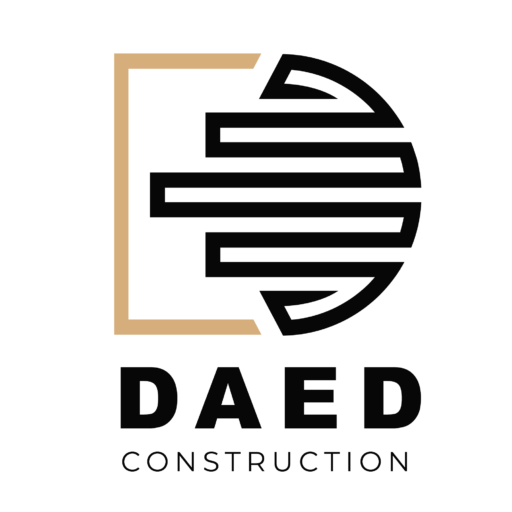Whether you’re interested in a charming villa by the Adriatic Sea, a modern apartment in bustling Tirana, or a lucrative rental property in the beautiful countryside, Albania offers diverse real estate options to meet your investment needs.
However, making a property investment in this country can be challenging, especially with all the new laws and regulations involved.
How is investing in real estate in Albania?
Is Albania an attractive destination for property investment?
Albania has emerged as an increasingly popular destination for property investment, and for good reasons.
Its real estate market is dynamic, evidenced by a significant data point: the steady increase in property prices, especially in major cities like Tirana. From 2018 to 2021, for instance, Tirana saw an average annual property price increase of around 8-10%, showcasing robust growth.
Historically, the Albanian real estate market has been resilient. While it faced challenges during the global financial crisis of 2008, it recovered relatively quickly compared to other European markets.
This resilience is partly due to the country’s growing economy and increasing foreign investment, particularly in the tourism and infrastructure sectors.
Investors often find success with certain types of properties and locations in Albania. Coastal properties, especially those in popular tourist areas like Saranda and Vlorë, tend to perform well due to the country’s burgeoning tourism industry.
Additionally, investments in apartments and commercial properties in urban centers like Tirana are often lucrative, given the city’s role as the economic and political heart of Albania.
Budget-wise, Albania offers a range of options, but generally, investments are more affordable compared to Western European standards, making it accessible for a broader range of investors.
One unique and positive aspect of Albanian properties is the prevalence of stunning natural views, particularly in coastal areas and cities nestled in the mountains. Many properties offer breathtaking vistas of the Adriatic and Ionian seas, or scenic mountain landscapes, a feature that significantly enhances their appeal and value.
Regarding safety and stability for investment, Albania presents a relatively stable environment. The country has been working towards European Union membership, which has prompted improvements in legal and regulatory frameworks, including those governing property ownership and investment.
This progress suggests a commitment to creating a more secure environment for investors.
As for the necessity of knowing the local language, it’s not absolutely essential for property investment. Many real estate agents and legal professionals in Albania are proficient in English, especially in areas frequented by international investors.
However, having a basic understanding of Albanian or working with a local translator can be beneficial in navigating the market more effectively and understanding the finer details of property transactions.
What are the trends forecasts for the real estate market in Albania?
The current trends in the Albanian housing market are quite fascinating. One notable trend is the increasing demand for properties in coastal areas, such as Saranda and Vlorë.
These regions are attracting not just local buyers but also a growing number of international investors, thanks to their scenic beauty and potential for tourism-related rentals.
Urban areas, particularly the capital city Tirana, are also experiencing a surge in property demand. This is driven by urbanization, with more people moving to the city for employment and educational opportunities.
When it comes to forecasts or predictions for the Albanian real estate market, several factors suggest continued growth.
Firstly, Albania’s ongoing efforts to join the European Union are likely to boost investor confidence, potentially leading to increased foreign investment in the property market. This integration process often comes with economic reforms and infrastructural development, which can further enhance the real estate sector’s attractiveness.
Additionally, the country’s growing tourism industry suggests a continued demand for short-term rental properties, which could keep the market buoyant, especially in tourist hotspots.
Several specific points indicate that the real estate market in Albania could continue to rise. The country’s relatively low property prices compared to other European destinations make it an attractive option for investors seeking value for money.
The increasing GDP and continuous improvements in infrastructure, such as road and public transport networks, also add to the market’s potential. The development of commercial spaces and the increasing presence of international companies in Albania hint at a strengthening economy, which typically bodes well for the real estate sector.
Political and economic changes can have a significant impact on property investments. For instance, political stability is crucial for maintaining investor confidence. Any significant political upheaval or instability could deter investors.
Economically, factors like inflation rates, interest rates on loans, and overall economic growth directly influence the real estate market. A stable and growing economy tends to encourage investment in real estate, whereas economic downturns can lead to a slump in the market.
As for upcoming legislation or government policies, any changes in property taxes, land use regulations, or foreign investment laws can have a direct impact on the real estate market. For example, if the government decides to incentivize property purchases through tax breaks or subsidies, it could spur market growth.
Conversely, stringent regulations on foreign property ownership or increases in property-related taxes could dampen investor enthusiasm.
What types of property can you buy in Albania? What are the prices and yields?
Investing in property in Albania can be an intriguing option, as the country offers a variety of property types suitable for investment.
Residential properties, commercial spaces, and even vacation homes along the beautiful coastlines are popular choices. Building a property in Albania is certainly doable, though it requires navigating local regulations and finding reliable construction partners.
The cost of residential properties in Albanian cities varies. In major cities like Tirana, Durrës, and Vlorë, the price can range significantly based on location, amenities, and property size.
As an estimate, prices in city centers might start from approximately €1,000 to €1,500 per square meter, while properties in less central areas could be cheaper.
Regarding the ratio of renters to owners, Albania has a mixed market. Many people prefer owning their homes, but there’s a significant rental market, especially in urban areas and tourist hotspots. The buy-to-let approach is becoming increasingly popular, particularly in cities and tourist areas where rental demand is high.
The rental yield potential can be attractive in Albanian cities, often ranging from 4% to 8% annually, depending on the property’s location, condition, and market demand. Rental demand is generally high, especially in major cities and tourist areas.
Cities like Tirana, with a growing expatriate and student population, often have a consistent demand for rental properties.
Tourism significantly impacts the property market, particularly in coastal areas and historical sites. Short-term rental demand spikes during the tourist season, often leading to higher rental pricing. Properties in tourist-favored locations like Saranda or Ksamil can be particularly lucrative for short-term rentals.
Reselling property in Albania can be straightforward, but the ease of resale largely depends on the property’s location, condition, and market trends at the time of sale. Popular areas and well-maintained properties tend to resell more easily.
The typical holding period for property investments in Albania varies. For long-term investments, holding periods can range from 5 to 15 years. This duration allows for potential capital appreciation.
Capital gains prospects also vary but can range from moderate to high, especially in rapidly developing areas or in places where significant future development is anticipated.
Which regions in Albania offer the best investment opportunities?
Foreigners often choose Albania as a destination for property investment due to its beautiful landscapes, affordable cost of living, and promising economic growth.
The country attracts a diverse range of foreigners, including retirees looking for a tranquil lifestyle, investors seeking profitable opportunities, and individuals drawn to the unique culture and natural beauty of the region.
Starting with the regions that are budget-friendly and yet offer good investment opportunities, the Southern Coastal areas, like Saranda, stand out. This region is known for its stunning beaches and vibrant tourist scene, making it a great option for those looking to invest in vacation rentals or second homes.
Prices in Saranda are still relatively low compared to other European coastal destinations, but with increasing tourism, property values and rental demand are likely to rise.
On the other hand, Tirana, the capital city, is becoming increasingly popular. It’s the economic and cultural hub of the country, attracting not only tourists but also business professionals. The demand for both residential and commercial properties in Tirana is growing, suggesting a strong potential for price appreciation and rental income.
However, prices in Tirana are higher than in other regions, reflecting its status as the capital.
Looking at the pros and cons, the Southern Coastal areas offer natural beauty and lower property prices, but they might lack some of the urban amenities found in Tirana. In contrast, Tirana offers more in terms of lifestyle, services, and business opportunities, but at a higher cost and with more competition in the property market.
Predicting the future trends, areas around Ksamil and Vlorë are promising. Ksamil, with its pristine beaches and proximity to the Greek island of Corfu, is likely to see an increase in international interest.
Vlorë, having a balance of beach life and urban amenities, might attract a broader range of investors and residents, potentially driving up property values and rental demand.
In terms of regions to be cautious about, it’s generally wise to avoid areas with less developed infrastructure or those far from major tourist attractions or business centers. These areas might offer lower prices, but the potential for growth and rental demand could be limited.
Each region in Albania offers a unique set of opportunities and challenges.
The key is to consider your personal and investment goals, do thorough research, and potentially consult with local real estate experts to make informed decisions about property investment in this beautiful and evolving country.
Who can invest in real estate in Albania?
Investing in property as a foreigner in Albania
Investing in housing property in Albania as a foreigner has its own set of rules and nuances.
Firstly, it’s important to know that foreigners generally do have the right to own property in Albania, but there are some distinctions and requirements to be aware of.
When it comes to owning land, as a foreign individual or foreign company, you can own buildings, but direct ownership of agricultural land is not permitted.
However, you can bypass this through the establishment of an Albanian company, which can then own the land. This is a common practice and is legally accepted.
The restrictions on property ownership don’t usually vary based on your country of origin. This means that the rules apply equally whether you are from a neighboring country or from a different continent.
However, always verify for any specific bilateral agreements between Albania and your home country that might offer different terms.
Living in Albania is not a prerequisite for purchasing property. You can buy property even on a tourist visa.
However, owning property in Albania doesn’t automatically grant you residency rights. If you’re planning to stay longer, you’ll need to apply for a residence permit separately.
Regarding the duration of ownership, there are no time limits. You can own the property indefinitely and can also pass it on to your heirs or sell it to another foreigner without any additional restrictions. This makes it a viable long-term investment.
For the purchase process, documentation is key. A Tax ID is indeed required for the transaction. This is necessary for both the purchase process and future property tax purposes.
You may also need other standard documents like your passport and proof of funds. It’s advisable to have these documents translated into Albanian to ease the process.
Governmental authorization is not typically required for the purchase itself, but you should ensure that all property documents are verified and the property is registered in your name post-purchase. This is crucial to establish legal ownership.
Having a local bank account is not mandatory, but it can simplify transactions, such as paying for the property or handling subsequent taxes and utility bills. Payments can often be made in foreign currencies, but it’s generally more practical to conduct these transactions in the local currency, the Albanian lek, to avoid exchange rate fluctuations and additional fees.
Finally, regarding taxes, foreigners are generally subject to the same property tax rates as local Albanians. This is part of the country’s effort to encourage foreign investment in the real estate sector.
Residency and investment in Albania
Albania offers an opportunity for foreign nationals to obtain residency through real estate investment, although the process and requirements are specific and need careful consideration.
To start with, you need to purchase a property in Albania. There isn’t a minimum investment amount set by the government for this; the value of the property you buy is up to you.
However, the investment must be significant enough to show that you have a genuine interest in residing in the country. After purchasing the property, you can apply for a residency permit.
The application process involves submitting various documents, including proof of property ownership, a valid passport, and possibly other personal documents.
You’ll need to ensure that all your documents are correctly prepared and translated into Albanian, as required by the Albanian authorities.
Once you have submitted your application, it will be reviewed by the relevant Albanian authorities. If your application is successful, you will be granted a residency permit.
Initially, this residency is temporary and typically lasts for a period of one year. However, it can be renewed annually as long as you maintain ownership of the property and comply with all Albanian laws and regulations.
It’s important to note that owning property in Albania and having a residency permit does not automatically lead to permanent residency or citizenship. For permanent residency, you generally need to have legally resided in Albania for a continuous period, often five years or more.
Citizenship, on the other hand, has its own set of requirements, including length of residency, language proficiency, and understanding of Albanian culture and laws.
As for the popularity of this scheme, there are no exact figures readily available on how many people have used it.
However, it’s becoming an increasingly attractive option for those looking to reside in Europe, particularly for retirees and investors.
How to get started to invest in real estate in Albania?
What is the step-by-step process to buy property in Albania?
Buying a property in Albania typically involves several steps, starting from making an offer to closing the deal. Understanding these steps is crucial to navigate the process smoothly.
Initially, once you find a property you like, you make an offer. If it’s accepted, a preliminary contract, often called a reservation agreement, is signed. This contract outlines the terms of the sale and usually involves a deposit, showing your commitment to the purchase.
One of the most crucial steps is the due diligence process.
This is where you, often with the help of a lawyer, check the legal status of the property. It includes verifying the ownership, ensuring there are no outstanding debts or legal issues, and confirming that the property has the necessary building permits. This stage is vital and can be complicated, especially if there are issues with the property’s documentation. Errors or oversights here can lead to significant problems later, so it’s essential to be thorough.
In Albania, an unusual step compared to some other countries is the involvement of a notary. The notary plays a critical role in the property buying process. They verify the documents, ensure the legality of the transaction, and oversee the signing of the final contract. This step is mandatory and ensures that everything is legally binding and properly recorded.
The entire process, from finding a house to having full ownership, can vary in length. On average, it might take a few months, but it can be longer if there are complications, especially during the due diligence phase or if there are delays in obtaining necessary documents.
While knowing the local language is beneficial, it’s not absolutely necessary. Many people navigate the process with the help of translators or lawyers who speak English or other foreign languages.
However, having some understanding of the language can certainly make things easier, especially when dealing with legal documents or negotiations.
Cultural norms and practices in Albania can influence the property buying process. One aspect to be aware of is the importance of personal relationships and connections. Networking can sometimes facilitate the process, helping in finding properties or navigating bureaucratic hurdles. However, it’s crucial to balance this with formal legal procedures to ensure everything is legitimate and binding.



